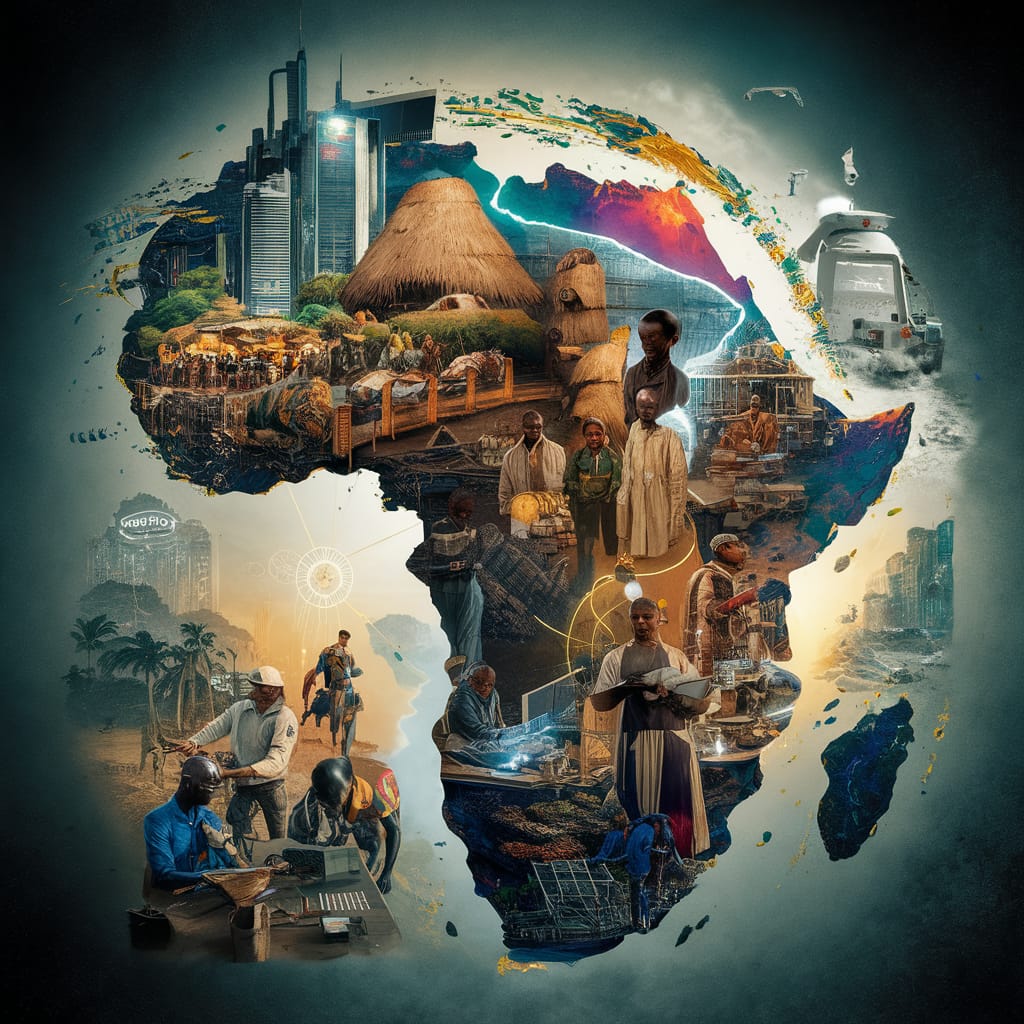Africa is experiencing a digital revolution. From mobile money reshaping financial landscapes to telemedicine bridging healthcare gaps, technological advancements are driving significant economic growth across the continent. This article explores how innovations in fintech, agriculture, and healthcare are spearheading this transformation.
Fintech: Mobile Money Revolutionizes Financial Inclusion
Fintech, especially mobile money, has become a game-changer in African finance. Over 400 million users rely on services like M-Pesa (Kenya), MTN Mobile Money (Ghana), and Orange Money (West Africa). These platforms allow users to perform transactions, save, and access credit with ease, fostering financial inclusion, particularly for the unbanked.
- Impact: In 2020, the mobile money industry processed a staggering $495 billion (GSMA). M-Pesa boasts over 40 million active users across seven countries, while Ghana saw a surge in mobile money transactions from $12.5 billion in 2016 to $81 billion in 2020.
- Benefits: Small businesses in rural areas can now receive payments, pay suppliers, and access microloans, boosting economic activity and stability.
Challenges: Uneven infrastructure, like unreliable internet and electricity, hinders seamless operations. Additionally, some regulatory environments need to adapt to support these innovations.
Agriculture: Precision Farming Cultivates a Brighter Future
Precision farming, utilizing data and technology to optimize farming practices, is transforming Africa’s agricultural sector, the backbone of many economies with a 60% workforce share.
- Innovations: Soil sensors monitor health, moisture, and nutrients. GPS technology aids in precise planting and fertilization, ensuring optimal crop growth. Drones and satellite imaging provide aerial views for monitoring crop health, pests, and irrigation needs.
- Success Stories: Farmcrowdy, a Nigerian startup, connects farmers with investors for scaling operations. This model empowers smallholder farmers by facilitating access to capital and increased productivity.
- Potential: The International Food Policy Research Institute estimates precision farming could boost yields by up to 67%. The African Development Bank (AfDB) suggests agriculture technology could add $50 billion to Africa’s GDP by 2030.
Challenges: High technology costs and a lack of technical expertise among farmers pose hurdles. Bridging this gap requires investment in education and affordable solutions.
Healthcare: Telemedicine Bridges the Gap in Access
Telemedicine is revolutionizing healthcare delivery, particularly in remote areas. By leveraging digital platforms, it provides access to medical consultations, diagnoses, and treatment without the need for travel.
- Innovations: Teleconsultations allow patients to consult doctors remotely. Mobile health apps offer services like symptom checking and virtual doctor visits.
- Success Stories: The Medical Concierge Group (TMCG) in Uganda has provided over one million telemedicine consultations, significantly improving rural access to healthcare. Similarly, South Africa’s Vula Mobile connects rural healthcare workers with specialists in urban hospitals, enhancing the quality of care.
- Impact: A McKinsey report suggests telemedicine could address up to 60% of African health issues, reducing the burden on traditional systems. The World Health Organization (WHO) highlights its potential to bridge the gap for the 50% of Africans lacking access to essential health services.
Challenges: Limited internet access and high data costs create obstacles. Regulatory hurdles and concerns about data privacy and remote care quality persist.
Conclusion: A Future Fueled by Innovation
Technological advancements are undeniably driving economic growth in Africa. Mobile money fosters financial inclusion, precision farming boosts agricultural productivity, and telemedicine improves healthcare access. However, infrastructure deficiencies, regulatory barriers, and high costs pose challenges.
Overcoming these hurdles requires a collaborative effort from governments, businesses, and international organizations. Investment in infrastructure, supportive policies, and education will be crucial. By embracing technology and fostering innovation, Africa can solidify its path to economic empowerment and a brighter future. As these technologies evolve, they’ll play an even greater role in shaping the continent’s future, driving sustainable development, and improving the quality of life for millions of Africans.

